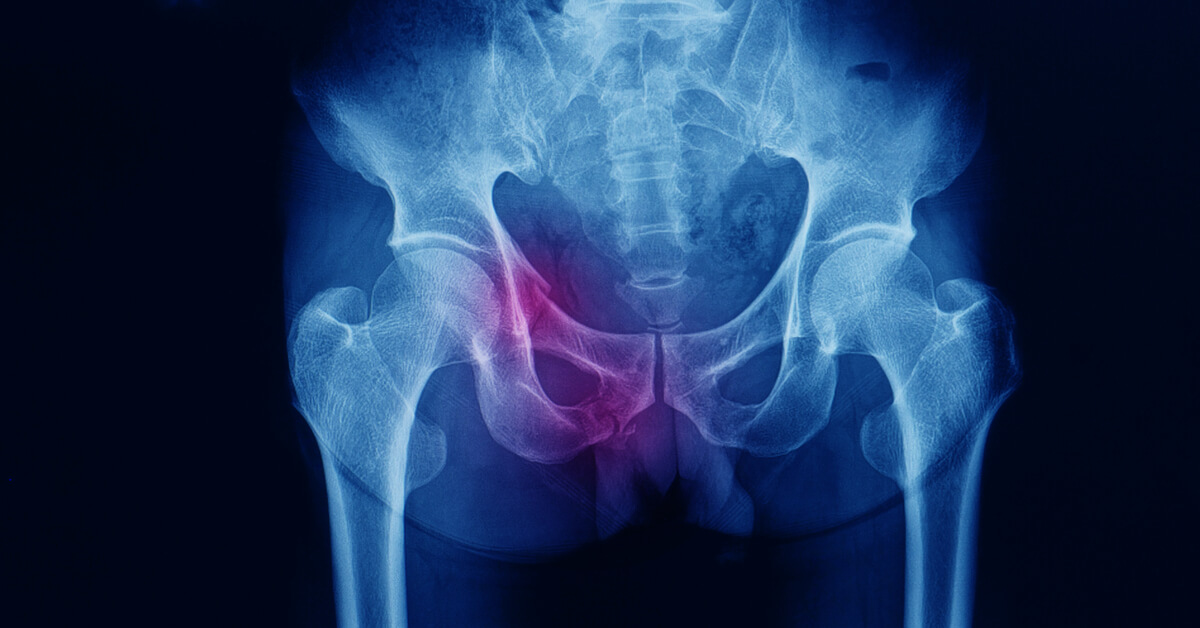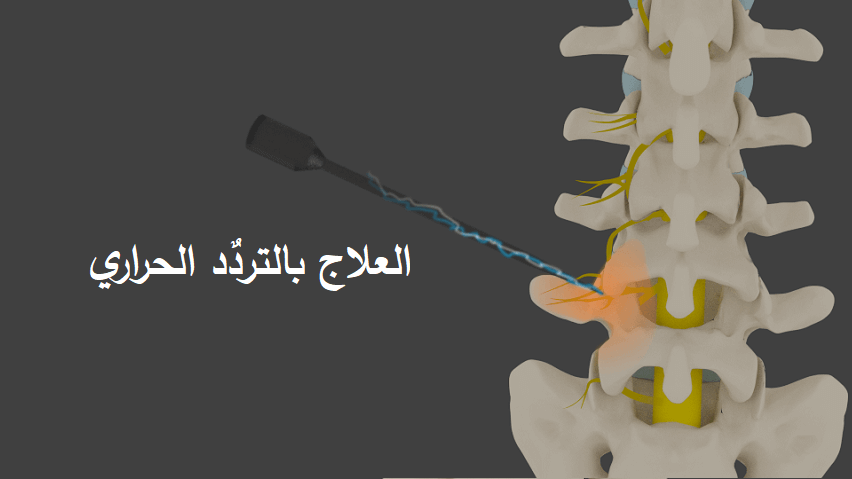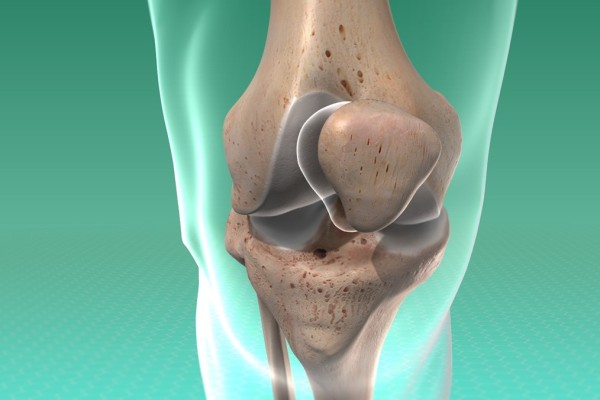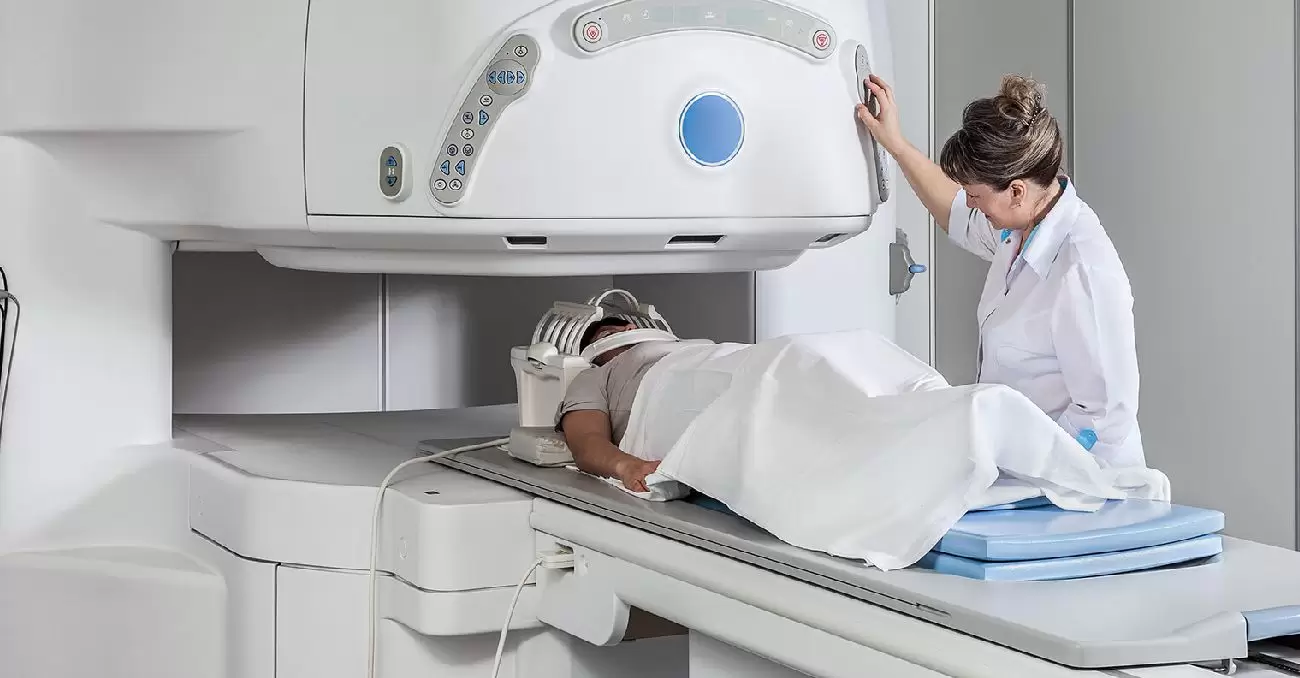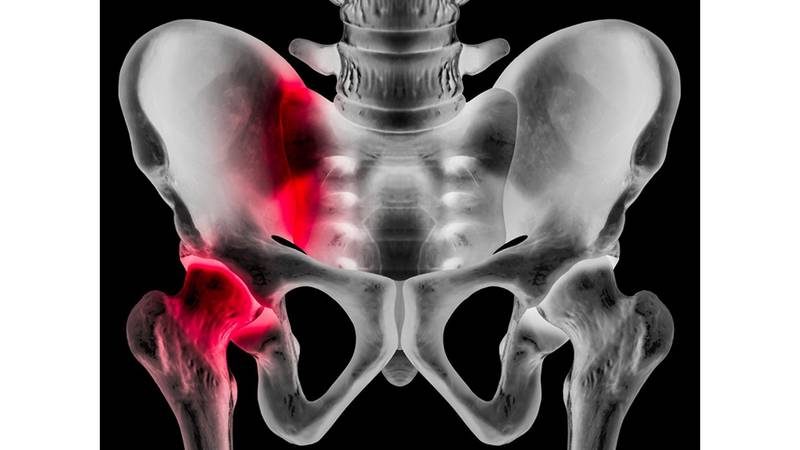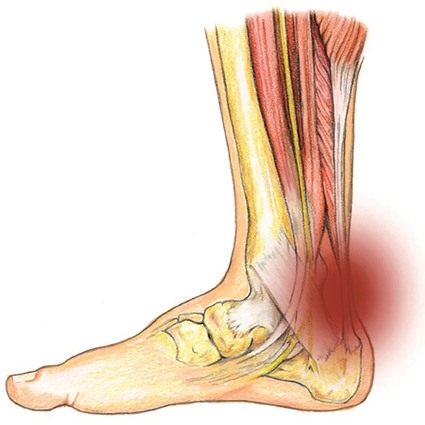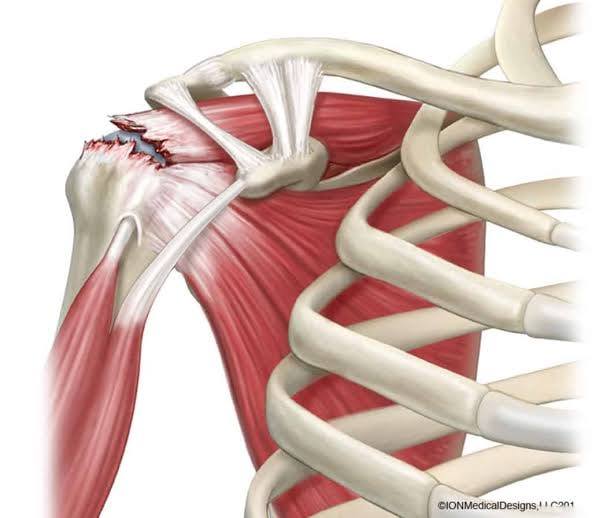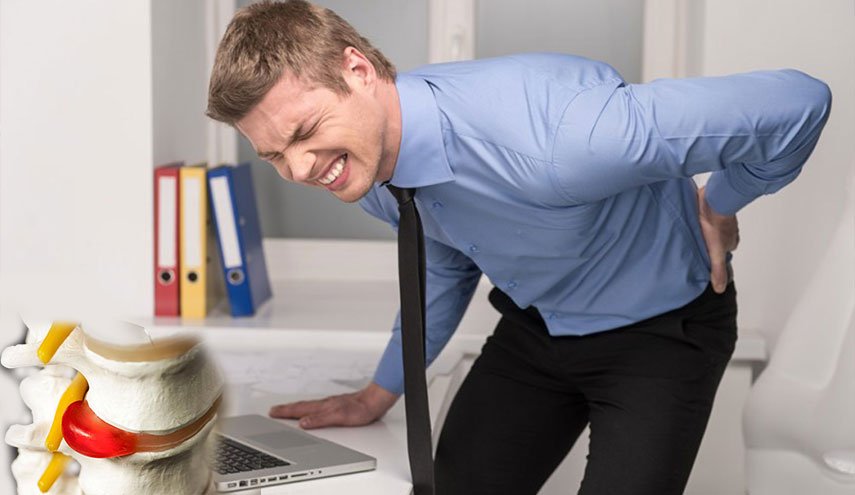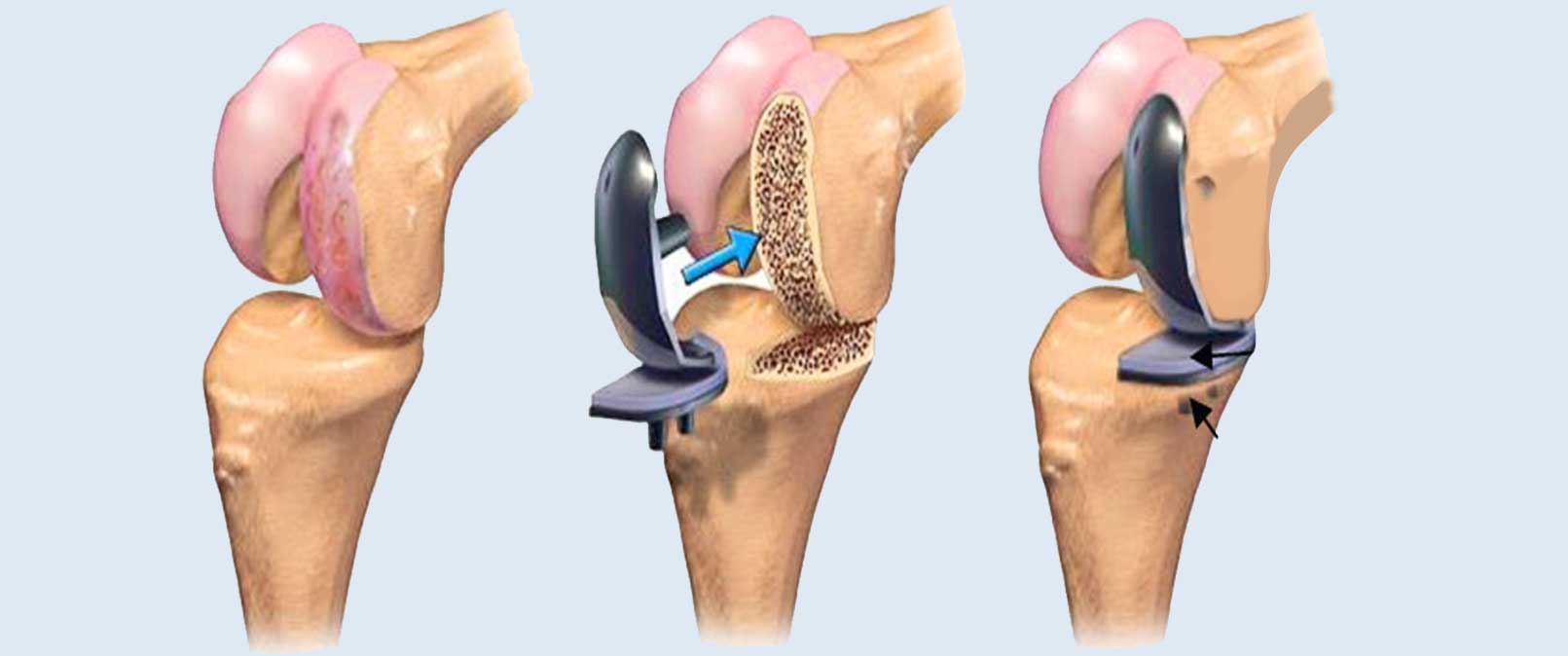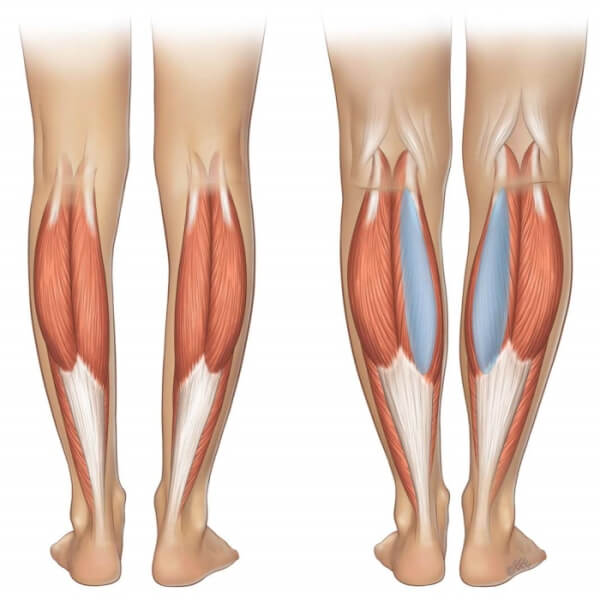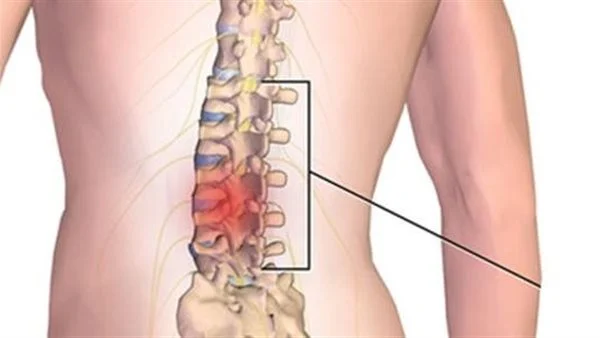What are the causes of neck pain from the back? And what does it indicate?
What are the causes of neck pain from the back?
Neck pain from the back is a common symptom experienced by many individuals. This pain can result from various causes and different issues within the body. Here is a list of the causes and treatments for neck pain from the back:
- Spinal and Disc Problems: Issues with the spine, such as herniated discs or compression of the neck nerve, can lead to pain in the back of the neck. These problems can be treated through physical therapy sessions or gradual therapies.
- Overuse of Neck Muscles: Prolonged periods of sitting in front of a computer or extended periods of driving can lead to strain in the neck muscles and the development of back neck pain. These pains can be relieved by changing body posture and performing suitable neck exercises.
- Muscle and Tendon Inflammation: Inflammation in the muscles or tendons can occur due to excessive use or sports injuries. Massage and the application of hot or cold compresses can help reduce pain and inflammation.
- Other Structural Problems: Neck pain may also result from issues in the spinal joints, facet joints, or the nerves surrounding the neck. The treatment depends on an accurate diagnosis and may involve multi-disciplinary interventions, including physical therapy, massage, and therapeutic exercises.
In general, individuals experiencing back neck pain should consult a physician to diagnose the condition accurately and determine the appropriate treatment. Treatment may require a multidisciplinary approach, including physical therapy, massage, and therapeutic exercises.
What does back neck pain indicate?
Here is a comprehensive list that explains some possible causes of back neck pain:
- The primary factor indicating back neck pain is muscle tension resulting from improper use of the muscles in the neck and shoulder area. Prolonged sitting in front of a computer or long drives can be a significant reason for muscle tension in the neck.
- Emotional and psychological stress can also affect the neck muscles, leading to pain from the back. Daily life stressors or work-related stress can cause muscle tension and stiffness.
- Injuries and accidents, such as falls or car accidents, may lead to muscle strains in the neck area and cause pain from the back. There may also be damage to nerves, ligaments, or spinal discs.
Please note that these are general explanations, and specific cases may require a more detailed evaluation by a healthcare professional.
Chronic disorders like rheumatoid arthritis and gouty arthritis can lead to pain in the back of the neck. There may also be a herniated disc in the spine, which can cause nerve compression and resulting pain.
Poor habits such as sitting in an incorrect posture or sleeping in an improper position can lead to muscle tension in the neck and cause pain.
Repetitive incorrect movements or excessive lifting can lead to muscle strain in the neck, resulting in pain from the back.
Lack of physical activity and irregular exercise can weaken neck muscles and lead to stiffness, causing pain.
Chronic conditions such as arthritis, nerve compression, and anemia can increase the likelihood of experiencing back neck pain.
While this list contains many possible causes of back neck pain, it is essential to consult a specialized physician to determine the exact cause and prescribe the necessary treatment.
When is back neck pain serious?
When back neck pain is constant, severe, and not relieved by over-the-counter medications, it may be an indicator of a more serious problem. Here is a list of rare conditions that require prompt medical evaluation:
- Spinal Injury: If you have been involved in a significant accident or trauma to the back, there may be a spinal injury that necessitates immediate attention.
- Arthritis: Neck pain may result from arthritis in the neck, requiring medical evaluation to determine the appropriate treatment.
- Whiplash: Continuous back neck pain can occur due to whiplash, which can lead to tendon or muscle tears, requiring intensive treatment.
- Stiff Neck: If you have difficulty moving your neck or experience stiffness, you may have a condition called a stiff neck that requires medical attention.
- Presence of a Tumor: In rare cases, pain may result from the presence of a tumor in the neck or lymph nodes. This condition may include cancer, so consulting a doctor for examination and proper diagnosis is essential.
Most cases of back neck pain are caused by poor posture or muscle tension and can be treated with appropriate neck-strengthening exercises and improving body posture while sitting and working. However, if you are suffering from severe and persistent neck pain, it is advisable to consult a doctor to assess the condition accurately and determine the appropriate treatment.
What is the treatment for neck pain from the back?
The treatment for neck pain from the back depends on the cause and severity of the pain. Here is a list of some methods and treatments used to alleviate neck pain from the back:
- Medication: Over-the-counter pain relievers, such as aspirin or ibuprofen, can be used to temporarily relieve pain. If the pain is severe, a doctor may prescribe stronger medications.
- Physical Therapy: Consultation with a physical therapist can help design a specific exercise program to strengthen neck muscles and improve flexibility. These exercises may include stretching, mobilization, and muscle strengthening exercises.
- Heat or Cold Application: Moist heat or ice can be used to locally alleviate neck pain. A cloth soaked in hot or cold water can be applied to the painful area for 15-20 minutes several times a day.
- Local Injections: In cases where cervical joint inflammation is diagnosed, the doctor may administer a local corticosteroid injection to reduce inflammation and relieve pain.
- Environmental Changes: It is essential to improve sitting, sleeping, and resting posture to avoid neck strain and prevent pain worsening. It is also recommended to avoid prolonged periods of sitting in front of computers or television without breaks.
- Psychological Counseling: Some individuals may need to consult a psychiatrist to deal with pain resulting from psychological stress and mental tension.
Consulting a doctor before trying any treatment is crucial to ensure a proper diagnosis of the cause of pain and the possibility of needing additional or surgical treatment. Rest and lifestyle changes may sometimes be sufficient to alleviate back neck pain, but if the pain persists or worsens, it is essential to consult a doctor.
Does vitamin D deficiency cause neck pain?
Simply put, vitamin D deficiency can cause neck pain. Vitamin D is considered an essential vitamin for bone and muscle health, significantly affecting calcium absorption in the body. When there is a deficiency in vitamin D levels, the risk of bone and joint pain increases, which can affect the neck and shoulders, in particular.
Neck and shoulder pain are common symptoms of vitamin D deficiency. People with this deficiency may experience scattered pain throughout the body, including the areas around the neck and shoulders. Pain may include muscle stiffness, muscle tension, and may also be accompanied by a sense of imbalance and overall weakness.
To maintain normal vitamin D levels, a person needs to consume between 600 and 800 international units of vitamin D daily. Vitamin D can be obtained through direct exposure to sunlight and consuming vitamin D-rich foods such as fatty fish and vitamin-fortified milk. It is also advisable to check the body’s vitamin D levels through a blood test, and in the case of severe deficiency, dietary supplements may be necessary to boost vitamin levels.
In summary, vitamin D deficiency can be the cause of neck and shoulder pain. It is essential to consume an adequate amount of vitamin D to maintain bone and muscle health. If symptoms such as neck pain and tension occur, vitamin D deficiency may be the contributing factor.
What are the symptoms of cervical disc herniation?
Cervical disc herniation is a medical condition caused by damage or injury to one of the intervertebral discs between the cervical vertebrae. This herniation is characterized by a variety of symptoms that affect the neck, shoulders, and arms. Here is a list of the most important symptoms that may indicate the presence of cervical disc herniation:
- Neck Pain: Neck pain is one of the primary symptoms that may indicate cervical disc herniation. The pain can vary in intensity and may worsen with neck movement or prolonged sitting.
- Numbness and Tingling in the Shoulder or Arms: Cervical disc herniation can cause numbness and tingling sensations in the shoulder or arms. This may also be accompanied by a burning or prickling sensation in the upper extremities.
- Neck Stiffness: Pain and inflammation resulting from cervical disc herniation can restrict neck movements, making them stiff and less flexible.
- Pain Radiating to the Upper Limbs: The pain caused by cervical disc herniation may extend to the arms and shoulders. The pain can be sharp and may be accompanied by a burning sensation.
- Hand Numbness: Numbness in the hands and fingers is a common symptom of cervical disc herniation. The numbness can be mild or severe and may be accompanied by tingling.
Please note that the symptoms mentioned above may vary from person to person, and some individuals may experience only some of them or all of them. If you are experiencing any of these symptoms, it is essential to consult a doctor for a proper diagnosis and receive appropriate treatment.
What are the symptoms of cervical spine compression?
Cervical spine compression is a common condition that can lead to several symptoms. It is essential to understand these symptoms to improve our understanding of the condition and its potential consequences. Here are some common symptoms of cervical spine compression:
- Burning and Pain: People with cervical spine compression may experience severe burning pain that radiates to the arms and legs. The pain can become chronic in some cases.
- Numbness, Tingling, and Weakness: Those affected by cervical spine compression may feel numbness, tingling, or weakness in the affected area, often extending to the arms and hands. This can be due to the compression of nerves branching from the spinal cord, causing these symptoms.
- Altered Sensation: Changes in sensation, such as decreased sensitivity or altered sensation, may be noticed in the affected area. This can be a result of nerve compression.
- Neck Stiffness: People with cervical spine compression may experience significant neck stiffness, making it difficult to move the neck freely.
- Joint Pain in the Spine: The affected person may notice joint pain in the cervical spine as the vertebrae deteriorate and deform.
- Chronic Pain: In advanced cases of cervical spine compression, symptoms may progress to become chronic, making the condition more challenging and impacting the individual’s daily life.
Remember that these symptoms may suggest cervical spine compression, but for an accurate diagnosis and appropriate treatment, it is essential for the patient to consult a specialist.
Does psychological stress cause neck pain?
Effect of Stress on Muscles: Many people experience neck pain due to psychological stress and tension. When a person is constantly stressed, it affects the muscles and can cause spasms and tension in the neck area, leading to pain.
Cervical Dystonia: Also known as “cervical dystonia,” this is a condition where a person experiences involuntary and continuous contractions of the neck muscles. This leads to abnormal bending and twisting of the neck, resulting in pain and stiffness in the neck.
Spinal Cord Compression: Psychological stress and pressure can increase the likelihood of spinal cord compression. Injuries or disorders of the neck can compress the spinal cord, causing neck and back pain, tingling, muscle weakness, and other symptoms.
Psychological Impact of Pain: If a person experiences chronic neck pain due to psychological stress, it can affect their mental state, leading to more stress and anxiety. In turn, this psychological impact of pain can worsen symptoms and the perception of neck pain.
Solutions for Relief: To alleviate neck pain associated with psychological stress, you can practice relaxation techniques such as yoga, deep breathing, and meditation. It is also advisable to release stress and tension by engaging in activities you enjoy and that occupy your mind and body, such as reading, exercising, listening to music, or enjoying aromatherapy.
It is essential to note that excessive psychological stress can affect many aspects of our lives, including the neck and the surrounding muscles. Therefore, it is necessary to be aware of the importance of managing stress and taking care of our mental and physical health.
What is the cause of nerve tension in the neck?
Nerve tension in the neck is a common condition that causes pain and muscle spasms in the neck area. There can be several reasons for this condition, including:
Compression of Nerve Roots: Compression of nerve roots is one of the causes of nerve tension in the neck, where there is abnormal pressure on the nerve roots in the neck. This can result from narrowing of the cervical vertebrae, disc herniation, or swelling in the tissue surrounding the nerve roots. This compression can lead to sharp pain and numbness or tingling in the neck and arms.
Arthritis Inflammation: Cervical arthritis can also be a common cause of nerve tension. Arthritis pain worsens with prolonged immobility, and inflammation-related symptoms such as muscle spasms and deep neck and back pain can increase.
Neck Muscle Tension: Neck muscle tension characterized by involuntary contractions in the neck muscles can also result in nerve tension. This can be a result of chronic psychological stress, physical tension, or muscle inflammation. This neck tension can cause sharp pain, muscle spasms, and pain in the neck, back, and arms.
Neck Posture: Improper neck posture and failure to treat it correctly can also lead to nerve tension in the neck. Not respecting the proper body position and postures during prolonged sitting or working can cause damage to the vertebrae, muscle spasms, and neck pain.
Repetitive Stress: Repetitive stress can be one of the causes of nerve tension in the neck. The results of excessive pressure and repeated stress on the nerves and muscles in the neck can lead to sharp pain and spasms in this area.
When experiencing continuous neck pain or other accompanying symptoms, it is essential to consult a doctor for an accurate diagnosis and appropriate treatment. Treatment may include medical therapy in some cases, physical therapy, lifestyle changes, and specific exercises to strengthen the neck muscles and alleviate pain.
How long does neck pain last?
Many people experience neck pain and wonder about the duration of this pain. The duration of neck pain depends on several factors, including the cause of the pain and its nature.
Neck pain due to daily life stress: Many people may experience neck pain due to psychological and emotional stress they face daily. The duration of this pain varies from person to person, as the pain may be temporary and disappear once psychological stress or emotional tension is relieved.
Neck pain due to injuries and strains: In the case of neck injuries or strains, a person may experience acute neck pain. The duration of the pain in this case varies depending on the severity of the injury and other factors such as age and the person’s overall health. Neck pain related to an injury may last for a few days to several weeks.
Neck pain due to muscle inflammation: Muscle inflammation in the neck can cause severe and sharp pain. Typically, the pain lasts for a duration ranging from a few days to several weeks. To reduce inflammation and pain, applying an ice pack to the affected area for 20 minutes several times a day during the first 48 to 72 hours is recommended, followed by using a warm compress or heating pad for pain relief.
Neck pain due to spinal problems: Some people suffer from chronic neck pain due to spinal problems, such as torn tendons or joint instability. The pain can last for an extended period, and the person may need to receive a proper diagnosis and appropriate treatment from a specialist doctor.
It’s important to note that each case is individual, and the duration of neck pain may vary from person to person. In cases of persistent and worsening pain, it is essential to consult a doctor for an accurate diagnosis and appropriate treatment.
What are the symptoms of neck muscle tension?
There are several symptoms associated with neck muscle tension, and it’s important to recognize them for an accurate diagnosis of the problem and its underlying cause. Here is a list of some common symptoms of neck muscle tension:
Pain: Individuals with neck muscle tension may experience severe pain in the neck area. The pain can be either constant or intermittent and may worsen with movement or when trying to keep the head in a specific position.
Head tilting: Difficulty moving the head smoothly and restrictions in head movement are common symptoms of muscle tension. A person may only be able to move their head to one side.
Tingling or numbness in the neck and surrounding area: Individuals may feel tingling or numbness in the tense neck and shoulder muscles. This sensation can be uncomfortable and may result in an inability to perform some daily activities correctly.
Headaches: Some people may experience headaches that intensify in the back of the head and extend into the neck. This headache can be painful and may last for an extended period.
Nerve compression: Neck muscle tension can lead to compression of the nerves in the surrounding area. This can result in weakness or numbness in the arms or fingers.
Limited ability to move the head: Many people find it challenging to move their heads fully or to turn in different directions due to neck muscle tension.
General discomfort: Individuals with neck muscle tension may experience overall discomfort, feeling tired, and general annoyance due to constant pain and tension.
It is important to consult a doctor if you are experiencing symptoms of neck muscle tension to receive an accurate diagnosis and a suitable treatment plan. Avoid further strain on the tense muscles and focus on overall health to maintain the health of your neck and shoulders.
Who is the specialist for neck pain?
The vast majority of neck pain is caused by muscle tension and strain and often does not require a medical examination, as doctors can diagnose the condition based on a clinical examination.
However, if you are looking for the best doctor to treat neck pain, the best option would be an orthopedic specialist.
An orthopedic doctor specializes in diagnosing and treating musculoskeletal problems, including those related to the neck.
An orthopedic specialist will assess your condition and diagnose potential issues, whether they are related to muscle tension, joint inflammation, or other problems.
If the doctor diagnoses a neck problem, they will prescribe an appropriate treatment plan, which may include medication, physical therapy exercises, and rehabilitation.
You should ensure that you choose the right orthopedic specialist who has experience and expertise in treating musculoskeletal issues.
It is recommended to look for a doctor with a good reputation and high ratings from previous patients, as well as extensive experience in treating neck problems.
You can check the list of orthopedic specialists in your area and review the feedback from previous patients regarding the quality of service and the effectiveness of the treatment they received.
Do not hesitate to consult with specialized doctors and ask any questions and inquiries you may have before making a decision about treatment.
Remember that neck problems may be ongoing and require continuous medical care and treatment, so you should choose a doctor who deals with you personally and cares about your health and well-being thoroughly.
The Specialist Doctor for Neck Pain
Dr. Amr Amal specializes in treating all types of neck pain and related problems. Neck pain is a common issue that many people suffer from, and it can be caused by herniated discs, swelling, or knots in the neck. It is essential not to underestimate this problem and seek medical attention promptly.
Dr. Amr Amal employs modern and advanced techniques to treat neck pain without the need for surgery. He focuses on organizing physical therapy and massage sessions to relieve tension and pain in the neck. Additionally, he utilizes advanced prolozone techniques that effectively address neck pain.
Dr. Amr Amal is renowned for being one of the distinguished doctors in the field of spinal pain treatment. He receives positive reviews from his patients and offers personalized care to ensure the best outcomes. He collaborates with many leading insurance companies, allowing patients to benefit from health insurance coverage for their treatment.
Furthermore, Dr. Amr Amal’s centrally located clinic in Heliopolis, Egypt, makes it convenient for patients to access his services and schedule appointments with ease.
Dr. Amr Amal’s goal is to provide comprehensive care for all his patients and improve their quality of life by addressing neck pain. Patient comfort and overall health are his top priorities, and he works diligently to achieve a noticeable improvement in the patient’s condition.
Dr. Amr Amal’s clinic is one of the best clinics for non-surgical neck pain treatment in Egypt. The clinic’s team is highly experienced and precise in diagnosis and treatment, utilizing modern techniques to ensure maximum benefit for patients. If you are experiencing neck pain or suspect any neck-related issues, do not hesitate to schedule an appointment with Dr. Amr Amal. You will receive the necessary care and specialized treatment your musculoskeletal system needs, along with the comfort and comprehensive care you deserve.



